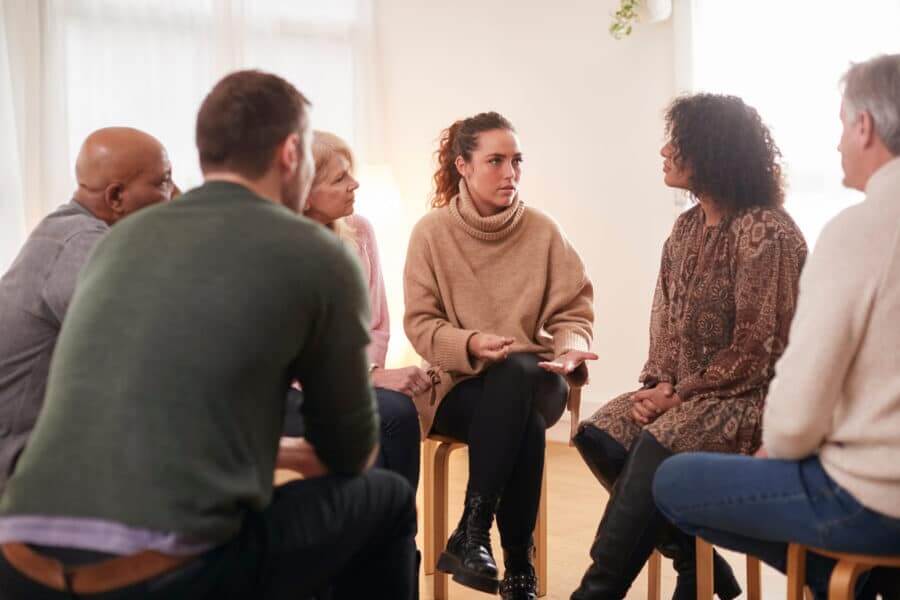Life is full of twists and turns, and sometimes, individuals find themselves on a challenging path marked by addiction, mental health struggles, or other life-altering circumstances. These difficulties can leave them feeling trapped, isolated, and without hope.
However, the concept of second chances is a powerful and transformative one. Rehabilitation centers serve as beacons of hope, offering individuals the opportunity to rebuild their lives, heal, and embrace a fresh start. In this blog post, we will explore how rehabilitation centers play a crucial role in providing second chances and empowering individuals to rewrite their life stories.
The Power of Second Chances
Second chances are more than just a hopeful notion; they represent the fundamental belief in human potential and the capacity for change.
Here’s why second chances are so powerful:
Rebuilding Trust:
For individuals who have faced addiction or legal issues, trust with loved ones or society may be severely damaged. Second chances allow them to rebuild trust, not only with others but also with themselves.
Overcoming Stigma:
Mental health challenges and addiction often carry a heavy stigma. Second chances provide an opportunity to challenge and break down these stigmas, paving the way for a more inclusive and empathetic society.
Learning and Growth:
Mistakes and hardships can be profound teachers. Second chances enable individuals to learn from their past experiences, grow, and make better choices in the future.
Restoring Dignity:
Addiction and mental health struggles can erode a person’s sense of dignity and self-worth. Second chances offer a chance to reclaim one’s dignity and self-respect.
Hope for the Future:
Perhaps most importantly, second chances instill hope. They remind individuals that they are not defined by their past mistakes or circumstances and that a brighter future is possible.
How Rehabilitation Centers Provide Second Chances
Rehabilitation centers serve as safe havens where individuals can begin their journey toward recovery, healing, and a fresh start.
Here are some key ways in which these centers support second chances:
Comprehensive Treatment Programs:
Rehabilitation centers offer comprehensive treatment programs that address a range of issues, from substance abuse and addiction to mental health disorders. These programs are designed to provide individuals with the tools and support they need to overcome their challenges.
Personalized Care:
No two individuals are alike, and rehabilitation centers recognize this by providing personalized care plans tailored to each person’s unique needs and circumstances. This individualized approach ensures that everyone has a chance at recovery.
Safe and Supportive Environment:
Rehabilitation centers create safe and supportive environments where individuals can heal without judgment or fear of stigma. This environment fosters trust, encourages vulnerability, and promotes open communication.
Access to Expert Care:
These centers offer access to a multidisciplinary team of experts, including doctors, therapists, counselors, and support staff. This expertise ensures that individuals receive the highest quality care and treatment.
Holistic Approach:
Many rehabilitation centers take a holistic approach to treatment, addressing not only the physical aspects of recovery but also the emotional, psychological, and spiritual dimensions. This approach allows individuals to heal on multiple levels.
Therapy and Counseling:
Individual and group therapy sessions are integral to rehabilitation. Therapy helps individuals explore the underlying causes of their challenges, develop coping strategies, and learn healthier ways of thinking and behaving.
Relapse Prevention:
Rehabilitation centers provide tools and resources for relapse prevention, helping individuals identify triggers and develop strategies to maintain their progress once they leave the center.
Education and Life Skills:
Many centers offer educational programs and life skills training to help individuals reintegrate into society successfully. These skills can include job readiness, financial literacy, and communication skills.
Supportive Community:
Rehabilitation centers often foster a sense of community among residents. This sense of belonging and shared experience can be incredibly empowering and provide a strong support network for individuals in recovery.
Real-Life Stories of Second Chances
To illustrate the transformative power of rehabilitation centers, let’s explore two real-life stories of individuals who found second chances through these facilities:
Sarah’s Journey to Sobriety:
Sarah had battled with alcohol addiction for over a decade, which had led to strained relationships, job loss, and a sense of despair. She decided to seek help and entered a rehabilitation center. There, she received personalized treatment that included detoxification, therapy, and relapse prevention strategies.
Sarah also participated in group therapy sessions, where she formed strong bonds with fellow residents who were on their own journeys to recovery. With the support of the rehabilitation center, Sarah gained the tools she needed to overcome her addiction, repair her relationships, and embark on a fulfilling, sober life.
James’ Path to Mental Wellness:
James had struggled with severe depression and anxiety, which had left him feeling isolated and unable to function in daily life. After a suicide attempt, he was admitted to a mental health rehabilitation center. The center provided James with a safe and nurturing environment where he could focus on his recovery.
He participated in individual and group therapy sessions and received medication management to address his mental health issues. Over time, James learned to manage his symptoms, build resilience, and develop healthy coping strategies. With the support of the rehabilitation center, he was able to reintegrate into his community, resume his studies, and regain his sense of purpose.
The Road to Lasting Change
While rehabilitation centers offer a vital lifeline and a second chance, it’s important to recognize that lasting change requires ongoing commitment and effort.
Here are some steps individuals can take to continue their journey toward a brighter future:
Stay Connected:
Maintaining a support network is crucial. Attend support groups, stay in touch with friends and family, and consider seeking ongoing therapy or counseling.
Practice Self-Care:
Prioritize self-care activities that promote physical and emotional well-being, such as exercise, mindfulness, and relaxation techniques.
Set Realistic Goals:
Set achievable goals for yourself. Break larger goals into smaller, manageable steps to avoid feeling overwhelmed.
Embrace Learning:
Continue to learn and grow. Education can open doors to new opportunities and help you build a fulfilling life.
Help Others:
Consider giving back by volunteering or providing support to others who may be facing similar challenges. Helping others can be a powerful source of healing.
Conclusion
Rehabilitation centers are beacons of hope that offer individuals a second chance at life. They provide the tools, support, and expertise needed to overcome addiction, mental health challenges, and other life-altering circumstances.
Through comprehensive treatment programs, personalized care, and a supportive environment, these centers empower individuals to rewrite their life stories and embark on a journey of recovery, healing, and transformation. Second chances remind us that it’s never too late to find hope, rebuild trust, and create a brighter future.



















